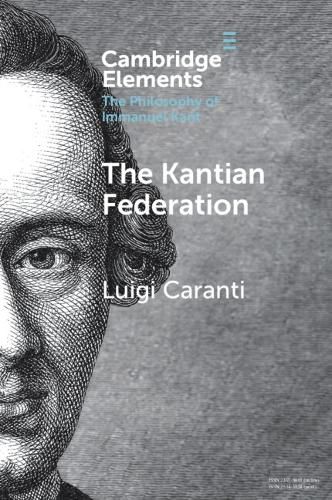Readings Newsletter
Become a Readings Member to make your shopping experience even easier.
Sign in or sign up for free!
You’re not far away from qualifying for FREE standard shipping within Australia
You’ve qualified for FREE standard shipping within Australia
The cart is loading…






This Element introduces the reader to Kant’s theory of peace and to its place in the broader context of the critical philosophy. It also delves into one aspect of the model that has generated much debate among interpreters, given Kant’s changing thoughts on the matter. This aspect relates to the nature and powers of the international federation. Defending the idea that national sovereignty is indissolubly linked to states’ full autonomy regarding the use of military power, this Element offers an interpretation and defense of the Kantian federation that, in many regards, departs from the mainstream reading. Special emphasis is placed on the problematic coexistence of two conflicting theoretical desiderata: on the one hand, the necessity of establishing an international institution with coercive powers for securing peace; on the other hand, the necessity of avoiding the risk of an excessive erosion of states’ sovereignty.
$9.00 standard shipping within Australia
FREE standard shipping within Australia for orders over $100.00
Express & International shipping calculated at checkout
This Element introduces the reader to Kant’s theory of peace and to its place in the broader context of the critical philosophy. It also delves into one aspect of the model that has generated much debate among interpreters, given Kant’s changing thoughts on the matter. This aspect relates to the nature and powers of the international federation. Defending the idea that national sovereignty is indissolubly linked to states’ full autonomy regarding the use of military power, this Element offers an interpretation and defense of the Kantian federation that, in many regards, departs from the mainstream reading. Special emphasis is placed on the problematic coexistence of two conflicting theoretical desiderata: on the one hand, the necessity of establishing an international institution with coercive powers for securing peace; on the other hand, the necessity of avoiding the risk of an excessive erosion of states’ sovereignty.